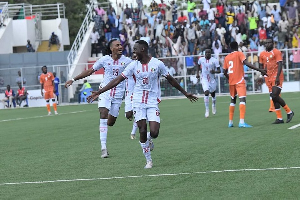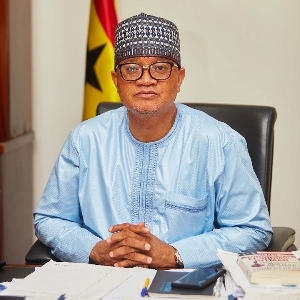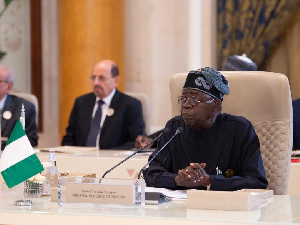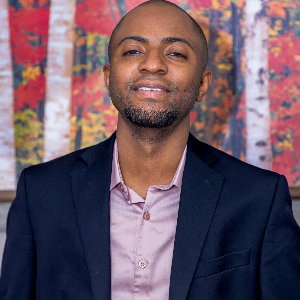Chairman and Flagbearer of the opposition Independent People's Party, Kofi Akpaloo is alleging that the Chairperson of the Electoral Commission, Mrs. Charlotte Osei is colluding with the Commission's lawyer, Thaddeus Sory to fleece the state.
According to him, the only motivation the Chairperson of the EC has in embarking on a series of court battles with candidates in the run up to the December 7 elections is the financial benefits that may have been agreed upon between her and Mr. Sory.
Speaking to Kwame Gyan on e.TV Ghana's news and current affairs programme, State of the Nation, a visibly unhappy Mr. Akpaloo said, "from where I am sitting as an accountant, I am suspecting that they are using this to milk the state; you know it goes to court with legal fees. Their lawyer will be paid for his services. We live in a country where people can do anything. Because she is sitting somewhere suspecting that we can forge signatures. So I am also suspecting that she is also conniving with the lawyer”.
When quizzed by programme host Kwame Gyan on whether he had evidence in suggestion that the two were colluding to defraud the state, the IPP leader retorted that "…but she also impugned criminal motives; if she thinks that we can forge then she herself she is a criminal so she too can do something of that sort".
Mr. Akpaloo who was among the 12 aspirants disqualified from contesting the December 7 polls by the EC on the specific grounds that “the number of subscribers to Mr. Akpaloo’s forms did not meet the requirements of Regulation 7 (2) (b) of CI 94. The details are as follows: three subscribers supported the nomination of another candidate in breach of Regulation 7 (4) of CI 94.
Again, the cross subscribers have different signatures on the nomination forms raising questions as to the legitimacy of these signatures. We will refer the matter of the possible forgeries of these signatures to the Ghana Police Service and the Attorney General for investigation and prosecution in line with the following sections of the Criminal Offences Act, 1960 (Act 29): Section 211: Perjury Section 248: making false declaration etc. for office or voting; Section 251: Deceiving a public officer, Section 256: Corruption, Intimidation and personation in respect of election”.
Mr. has not taken the disqualification lightly. In a series of media outbursts he has accused the EC of deliberately trying to sabotage him among other accusations. He insist that the grounds for his disqualification are frivolous particularly when one considers them in reference to CI94.
“Even a lawyer who has just graduated from school can win the case against the EC with regards to CI94 9(2) and so the lawyers should know better; she herself she is a lawyer she is a lawyer so she should know she will lose”.
General News of Saturday, 5 November 2016
Source: Kwame Gyan

















